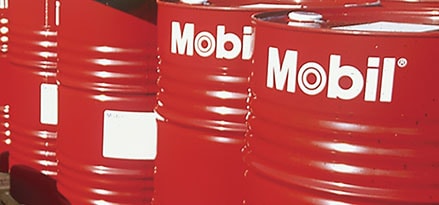Best practice benefits
In order to ensure that lubricants and greases can deliver their maximum performance, they must be stored and handled correctly, both shore-side and on board vessels. Poor handling, storing and dispensing methods can cause the products to deteriorate or become contaminated, which can result in machinery damage and potentially avoidable maintenance issues.
Problems can arise due to:
- Container damage
- Water contamination from rain, seawater or condensation
- Dirty dispensing equipment
- Exposure to dust and dirt
- Mixing different brands or types of lubricant
- Exposure to excessive heat or cold
- Products exceeding their shelf life
Best practice guidelines
ExxonMobil has produced lubricant handling, storing and dispensing guidelines to help users avoid the most common lubricant-related issues.
Handling
Drums and pails should only be moved using the correct lifting equipment to avoid container damage, drops and spills. Containers should only be filled in clean conditions.
Storage
Use a cool, dry, indoor storage area for lubricants and greases, avoiding environments that can reach extreme temperatures. The ideal storage range is 5-50 degrees Celsius, but users should contact their ExxonMobil representative for specific product recommendations. Drums and pails must be securely tied, properly labelled and checked regularly for any signs of leakage.
If drums have to be stowed on deck, they should be stored on pallets to raise them off the deck with bungs forward. If this is not possible, drums should be tilted in order to avoid water settling around the bungs. Always cover with tarpaulin.
Dispensing
Use the first-in, first-out storage principle; check container labels to ensure the oldest products get used first. Clean drums and pails before opening and use clean dispensing equipment. Do not mix products and always replace lids and bungs properly after opening.


